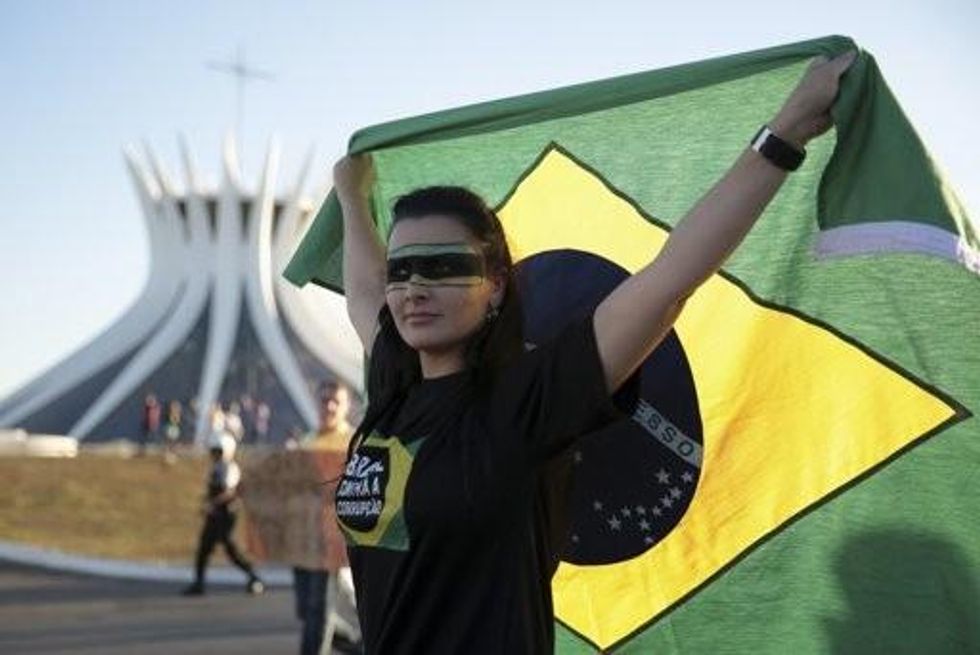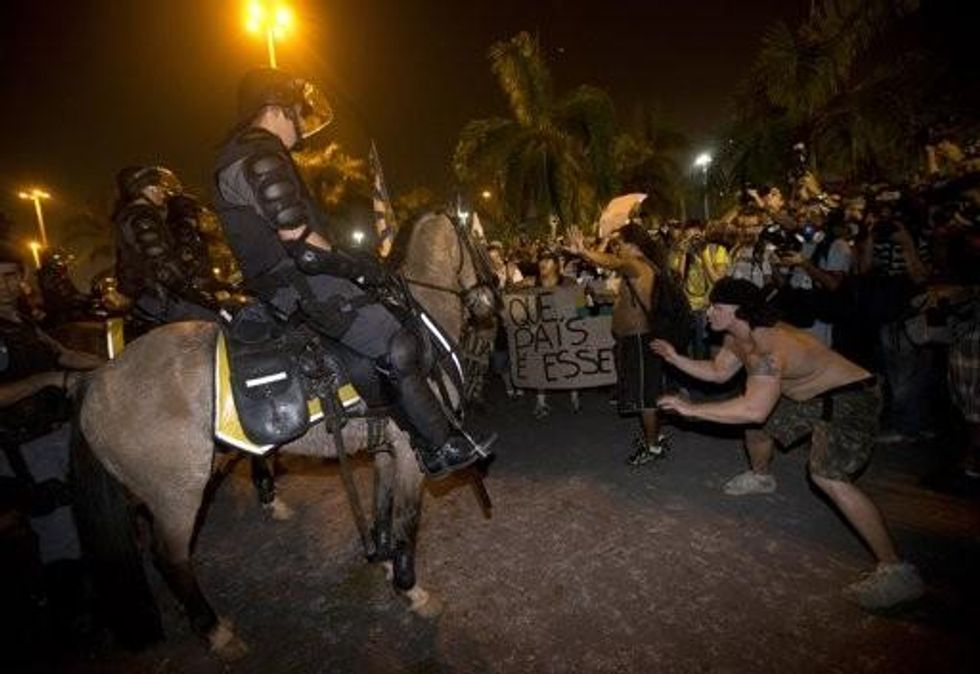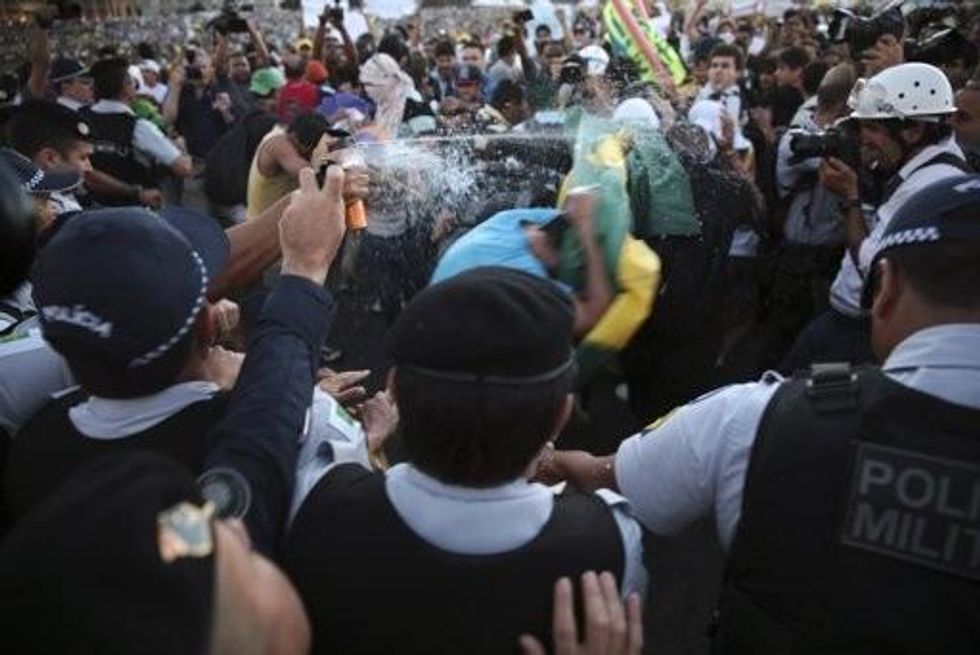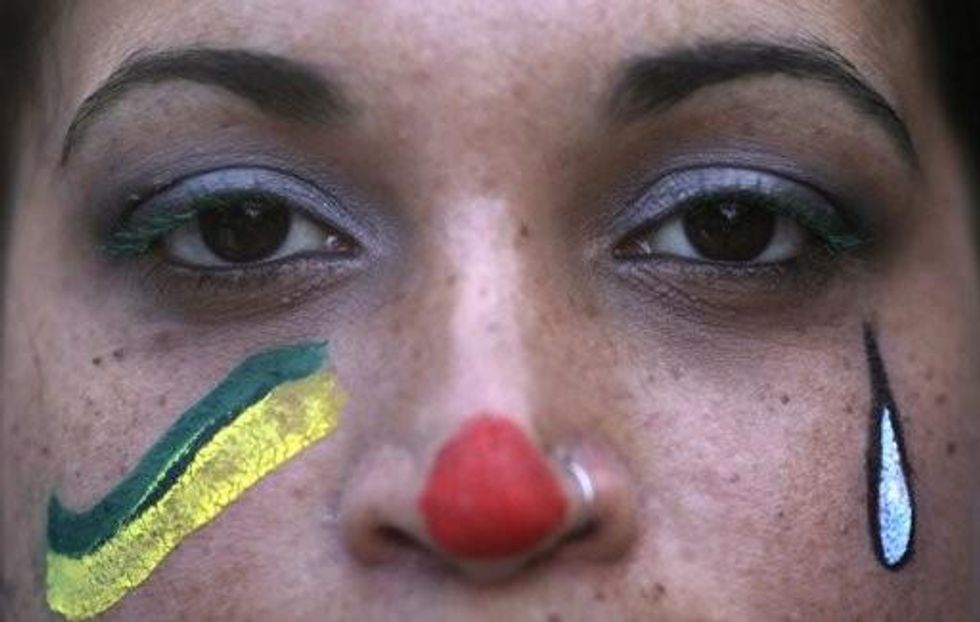Up to a million demonstrators marched on the city of Rio de Janiero Thursday night in an overwhelming statement that the ongoing protests which have rocked the country for the past few weeks are about "more than just 20 cents."
Similar demonstrations were reported in over 80 cities across the country with a total turnout estimated at roughly 2 million people. According to reports, approximately 110,000 took to the streets of Sao Paulo, 30,000 in the capital Brasilia, 80,000 in Manaus, 50,000 in Recife and 20,000 in Belo Horizonte and Salvador Thursday. In Rio, reports vary but demonstrators estimate that crowd swelled to a million protesters.
Wielding placards that read "Twenty cents is just the start;" "Stop corruption. Change Brazil"; "Come to the street. It's the only place we don't pay taxes"; and "Brazil is waking up," Brazilians took to the streets in droves.
"There are no politicians who speak for us," said Jamaime Schmitt. "This is not just about bus fares any more. We pay high taxes and we are a rich country, but we can't see this in our schools, hospitals and roads."
Another protester in the city of Belo Horizonte, Nancy Borges, speculated to AFP that the demonstrations "could even bring down the government."
In anticipation of the rally, Rio's law enforcement officials increased their numbers by ten-fold after recruiting an additional 8,000 officers and a squadron of 1,000 armed riot police to quell the protesters.
Though the demonstrations were largely peaceful, there were numerous reported instances where a small contingent of demonstrators clashed with police who retaliated against the larger nonviolent crowd. Many shouted "no violence" and "no vandalism" at the renegade protesters.
Police responded by firing volleys of pepper spray and rubber bullets into the crowd," in Rio, the Guardian reports. Elsewhere, instances of police brutality caused "countless" injuries, as police employed rubber bullets and "percussion grenades."
"Where we had been tranquil, then suddenly they started firing gas into the crowd. People were scared and appalled," said protester Alessandra Sampaio. "They are cowards. They wanted to disperse the crowd never mind who it was. I'm very angry. It was a real abuse of power."
Victor Bezerra, a law student, told the Guardian that the police response 'was like something from the dictatorship era,' saying "These are bad days for Brazil. The police were acting just like they did 30 years ago."
In Brasilia, military police threw a security cordon around the building after protesters attempted to break into the foreign ministry.
Other instances of aggressive police backlash were reported in the cities of Belem, Porto Alegre, Belo Horizonte, Campinas and Salvador where police "used tear gas, pepper spray and other tools to disperse crowds," Reuters reports. "They donned riot gear and used horses, trucks and barricades to help channel the crowds and protect buildings."
According to the New York Times, the protesters have extended their ire to Brazil's corporate media "which some see as tied to the elite and focused on portraying the violent minority of demonstrators."
They continue:
As an alternative, some protesters have begun covering the demonstrations themselves, distributing their reports though social media. One group, called N.I.N.J.A., a Portuguese acronym for Independent Journalism and Action Narratives, has been circulating through the streets with smartphones, cameras and a generator held in a supermarket cart -- a makeshift, roving production studio.
Initially spurred by a spike in transportation fares, the demonstrations have escalated into a broader protest against police brutality, government corruption, high taxes and the prioritization of tourism and international events such as the upcoming World Cup and Olympic games over basic civic commodities.
In response to the mass demonstration, Brazilian president Dilma Rousseff canceled an upcoming trip to Japan and called an emergency cabinet meeting for Friday to discuss the rapidly growing demonstrations. There is speculation that she will make a national radio address after the meeting.
_____________________







